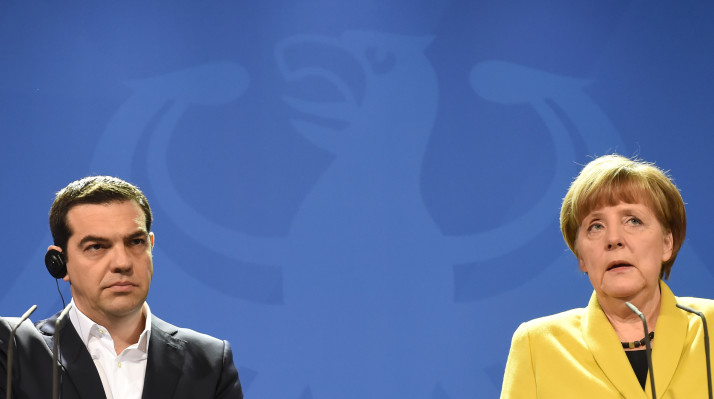Belatedly, here is an article I wrote on Greece’s agreement with the Eurozone for Ricochet. It focuses on the next four months with their opportunities and pitfalls. Given that the list of reforms authored by Yanis Varoufakis looks to get the approval of the Eurogroup member states, the article remains relevant, the breathing room actually in place.
Assuming its plan of reforms is accepted by the Eurogroup on Monday, Greece’s Syriza government has gained four months of breathing room — albeit in the same stuffy space, already full of the nauseating fumes of austerity, the window barely cracked.
No one was humiliated in Friday’s compromise between Greece and the Eurogroup. Nevertheless, Syriza had to concede much, most painfully the continued involvement of external observers from the Troika. In return, Germany’s no-compromise hard line was finally broken. Friday concluded but the first skirmish in a long battle.
If anything, the resulting agreement demonstrates the weakness of Syriza’s position. Syriza has inherited an economy and financial system in tatters — years of economic depression compounded by sadistic austerity. Yet its leaders, for now, calculate that change outside the bounds of European institutions, including the euro, would open the gates to something far worse. Whatever the precise distribution of gains and losses, which will only come to light as the agreement is implemented, the fact remains that Syriza has four months to act.
Four months to stop the bleeding
First, of course, there is the pressing need to start enacting change in state policy. Existing austerity measures will be hard to dislodge for the time being. But breathing room means that Syriza will be able to spend more, even run a smaller primary surplus this year than stipulated in the old program, perhaps by up to 3 per cent of GDP. It can also start breaking the old oligarchy’s grip on the Greek economy and go after the unpaid taxes of the rich.
Beyond this, there is space for creativity. One Greek journalist tweeted that he’d already overheard Greece’s delegation at the Eurogroup talking about creative ways to raise the minimum wage. Though a far cry from simply raising the minimum wage, such creativity would be a testament to Europe’s intransigence.
Altogether this amounts to a program that can stop the bleeding and subtly fortify the patient before the next round of negotiations.




